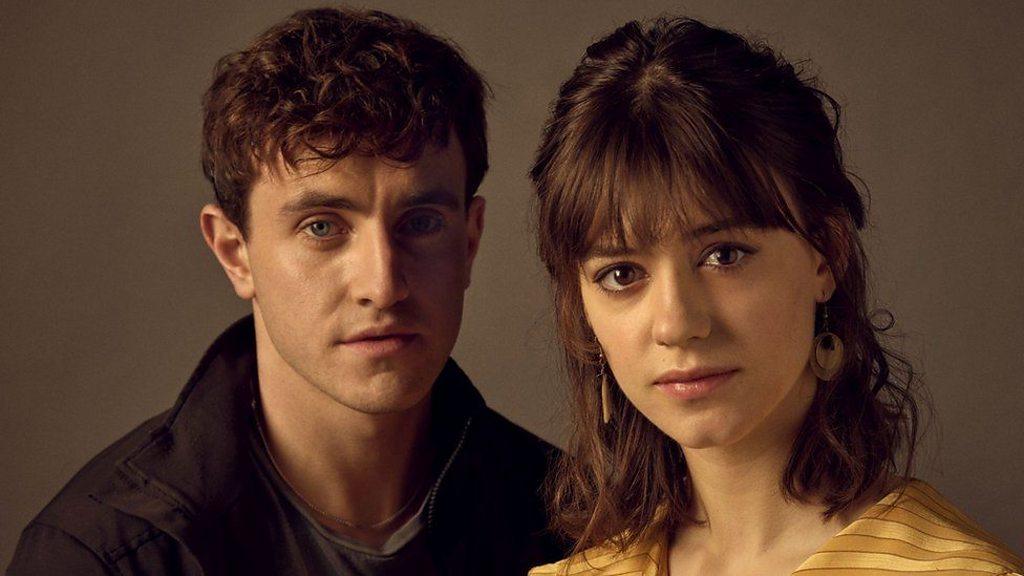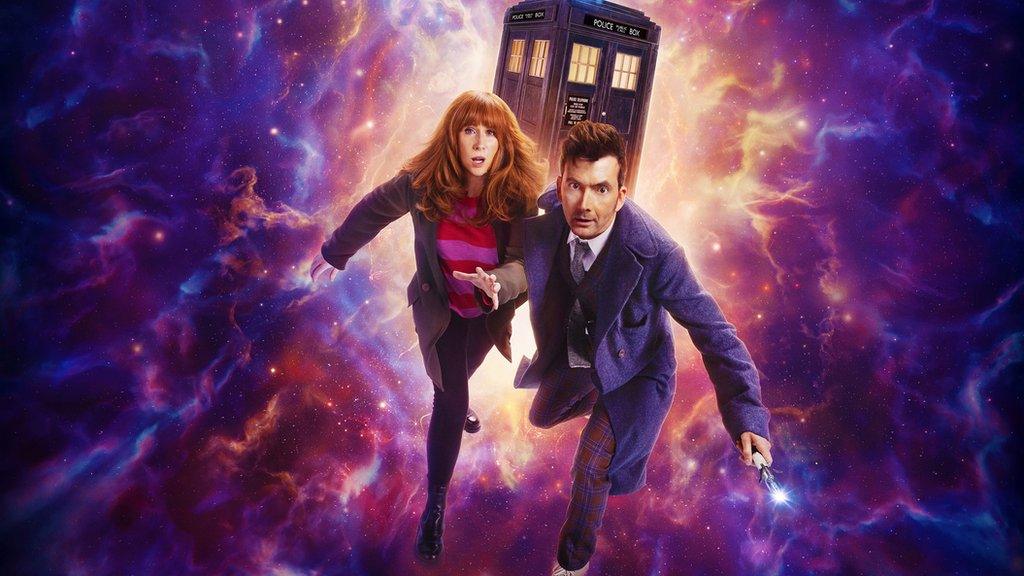Lord Hall: People have turned to BBC 'in their droves' during pandemic
- Published
Tony Hall on the future of the BBC and the role the corporation has played during the Covid-19 crisis
People have "turned to the BBC in their droves" in recent weeks, according to the BBC's director general.
Speaking to the BBC's Andrew Marr, Tony Hall said 94% of the UK accessed the BBC for "information, entertainment or education" during the pandemic.
He said he "took his hat off" to staff who had created "excellent" content, even though 92% of the workforce were now working from home.
The BBC could lose £125m in revenue because of coronavirus, he added.
Lord Hall also said he recognised the need for a "big debate" about the future of the BBC and the way it is funded.
The director general, who is set to leave his role in the summer, said younger audiences had been coming back to the BBC during the lockdown, with shows such as Normal People becoming huge hits.
The corporation said that 94% of the British public used the BBC in the third week of March when social distancing began in the UK - with 86% of younger people between the ages of 16-34 also accessing BBC content.
Lord Hall also credited this success to its "biggest ever educational programme", as well the launch of Culture in Quarantine - an arts and culture service which Lord Hall says keeps "the arts alive in people's homes and support the arts sector during challenging times".
He was pressed on plans to bring back BBC Three as a regular TV channel, four years after it was taken off air and moved online to save costs.
Lord Hall said the initial plans had been a "fantastic, creative success" and showed "the importance of developing our iPlayer, developing our sounds and making sure that our new services are in tip top position for young audiences to come to".
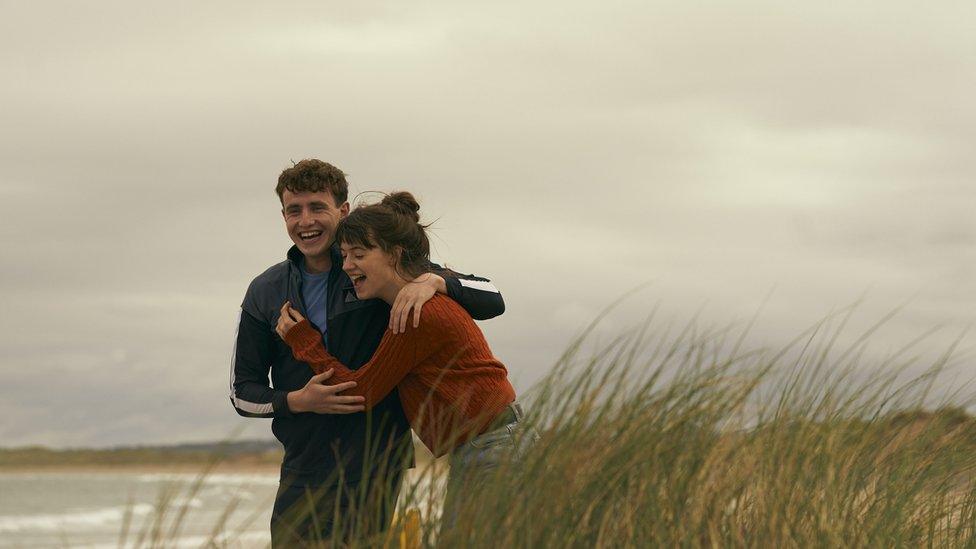
Normal People has attracted record audiences for BBC Three on iPlayer
However, he acknowledged that the broadcaster could potentially lose £125m as a result of coronavirus, meaning it would have to spend "wisely" in future.
The BBC is facing financial pressure after being forced to delay the end of the free TV licence scheme for all over-75s.
It also had to postpone plans to cut 450 jobs, and said there was uncertainty around commercial revenues.
Lord Hall said that he hopes in future, there will be a "big debate" about how the BBC should be funded post 2027, when the current charter comes to an end.
He said: "The question is, what's the best way of funding that universally so that everybody, this great democratic idea, gets something we can all share.
"I hope even when I've left I can take part in that debate and we should look at the easiest way to pay, learn from what happens in other countries, are there fairer ways to pay, but the underpinning for all that is the idea of a BBC which is providing something for everyone."
It comes after a public consultation was launched by the government on whether failure to pay for a TV licence should stop being a criminal offence, with the BBC warning it would cost the corporation more than £1bn over five years.
- Published16 March 2020
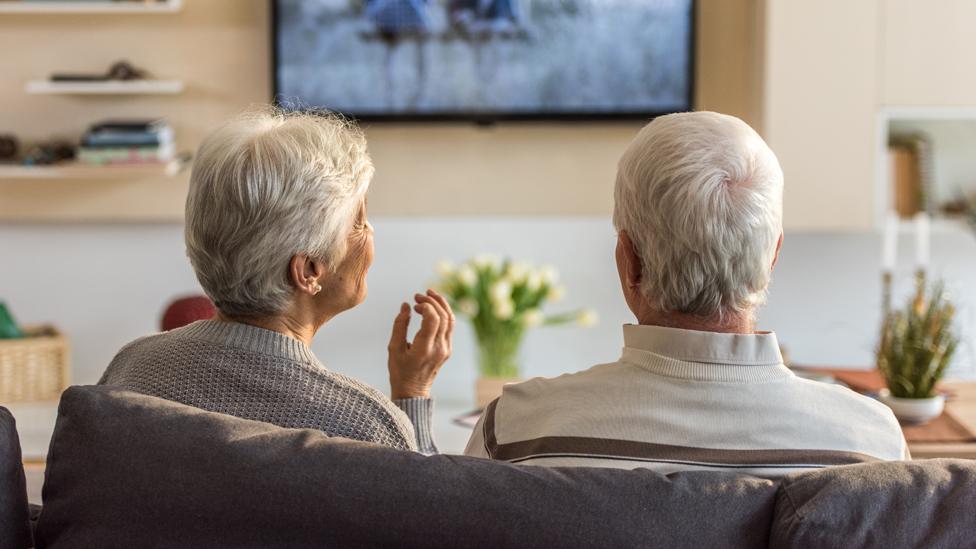
- Published12 March 2020
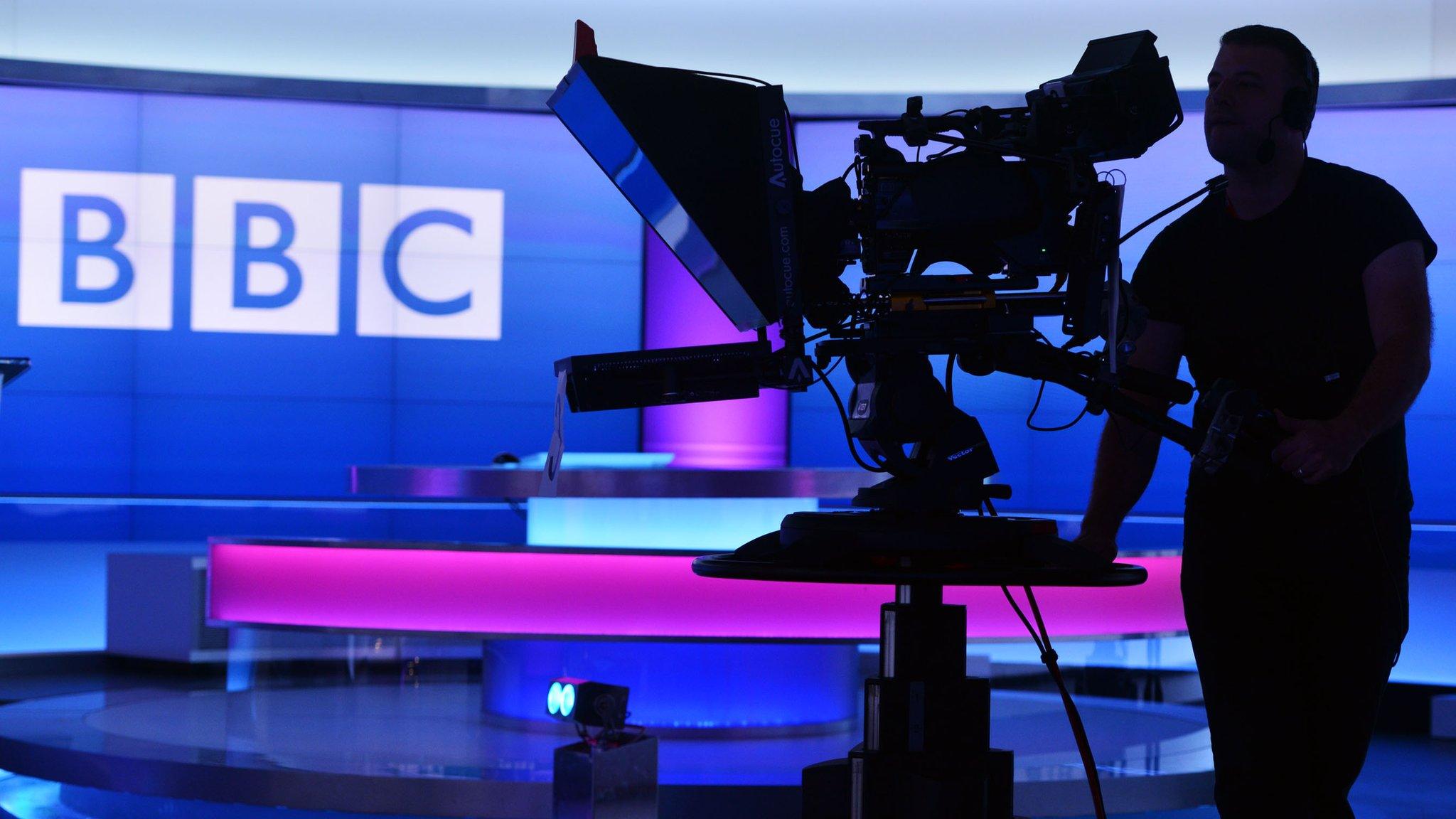
- Published26 April 2020
